24 December 2020

Sally Callie
Triple Olympian, Current Olympic Record Holder, Coach and Educator
Bachelor of Education (Secondary Physical Education)
When Sally Callie woke up from her seven-hour craniotomy surgery paralysed down her entire left side, she wasn’t sure she’d ever walk again, let alone return to her beloved education career. She had stroked during the procedure and her life as an elite athlete and former Olympic rower as she knew it was over as well.
Sally (nee Newmarch) has been an athlete her entire life – a star cross-country runner until she was scouted for rowing in her final years of high school. She proved to be a talented and natural rower, and within the first four years had made the 1996 Atlanta Olympics.
With the help of some encouraging, flexible teachers and lecturers that became mentors – instilling the power of a strong mindset – she ended out a professional athletic golden run as a four-time national champion, a medal winning national representative competing at the World Rowing Championships from 1993 to 2004, and a three-time Olympian.
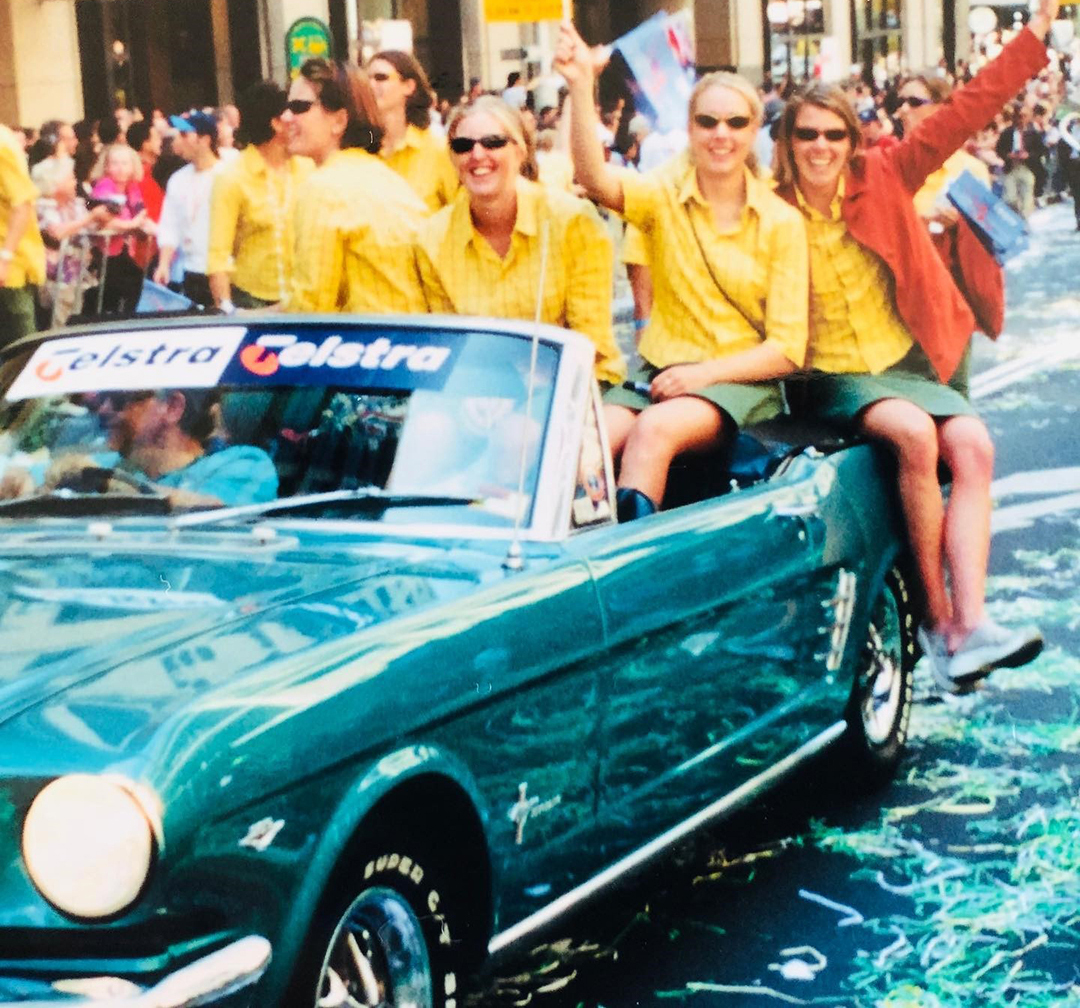
Throughout this time, she was also completing her Bachelor of Education at the University of South Australia – studying between intensive training sessions and doing exams on planes.
Her supportive lecturers and coaches encouraged both her sporting career and study. It had a powerful impact on her growth not just as an athlete and student, but a person – it confirmed that her heart also lied in contributing meaningfully to the lives of children.
It was after university and the beginning of a bright teaching career, that she discovered the genetic arteriovenous malformation impinging on her brain that required life-altering intervention.
Two weeks after the invasive surgery that had a 15-20% risk of fatality, Sally’s movement had not returned and was relocated to a stroke unit and rehabilitation centre. Here she lived for four months learning to walk, dress and feed again.
Surrounded by mostly elderly stroke survivors it was overwhelming for Sally at first. As a new wife and mother of two children under two years, especially someone that was known for their physical ability, it shook her to the core.
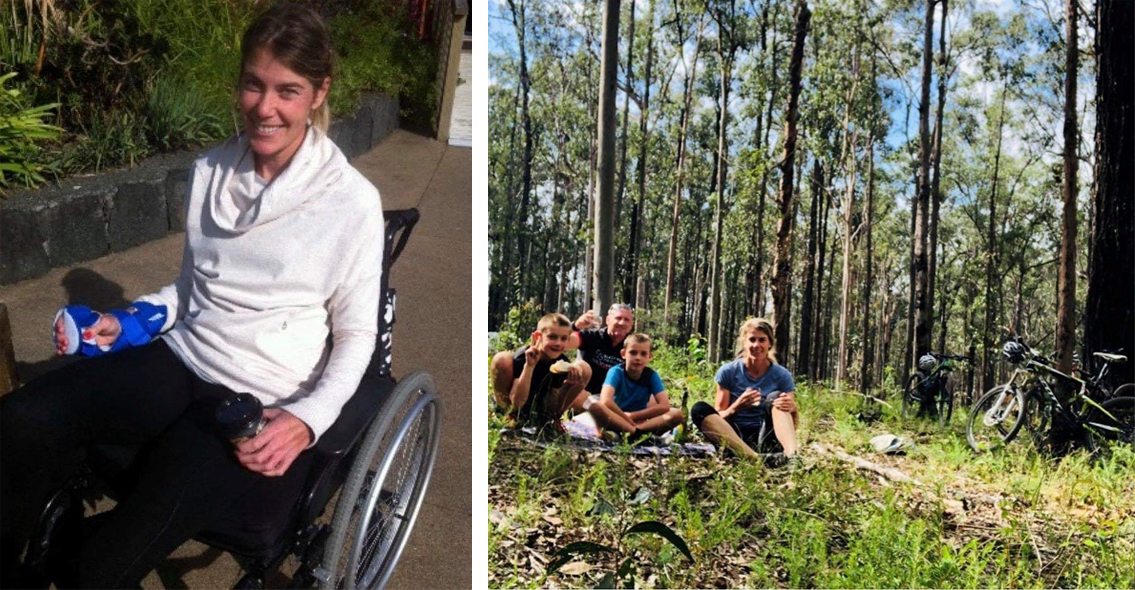
“I felt like an athlete in an infant’s body. I still felt like this Olympic athlete and now I was just an infant that couldn’t do anything for myself. I just felt lifeless and a burden on my husband and kids,” Sally says.
“I was terrified, feeling so vulnerable and ashamed of who I was. I really had to close the door on my career and embrace a new identity and think about what to do in the future.”
“I think this happens to so many of us – something gets taken away and you've almost got to use it to reidentify your authentic self and find out who you really are.”
It was the powerful life lessons from her Olympic rowing career – of grit, seeing obstacles as opportunities, and an ability to be comfortable in an uncomfortable environment – and wisdom from the raw and honest conversations with fellow elderly stroke patients in rehab, most on their way to palliative care, that got her through these difficult times.
Sally spent a year in total recovering, building up her strength, and slowing down from her fast-paced life playing catch up with her peers after an all-encompassing Olympic and academic career.
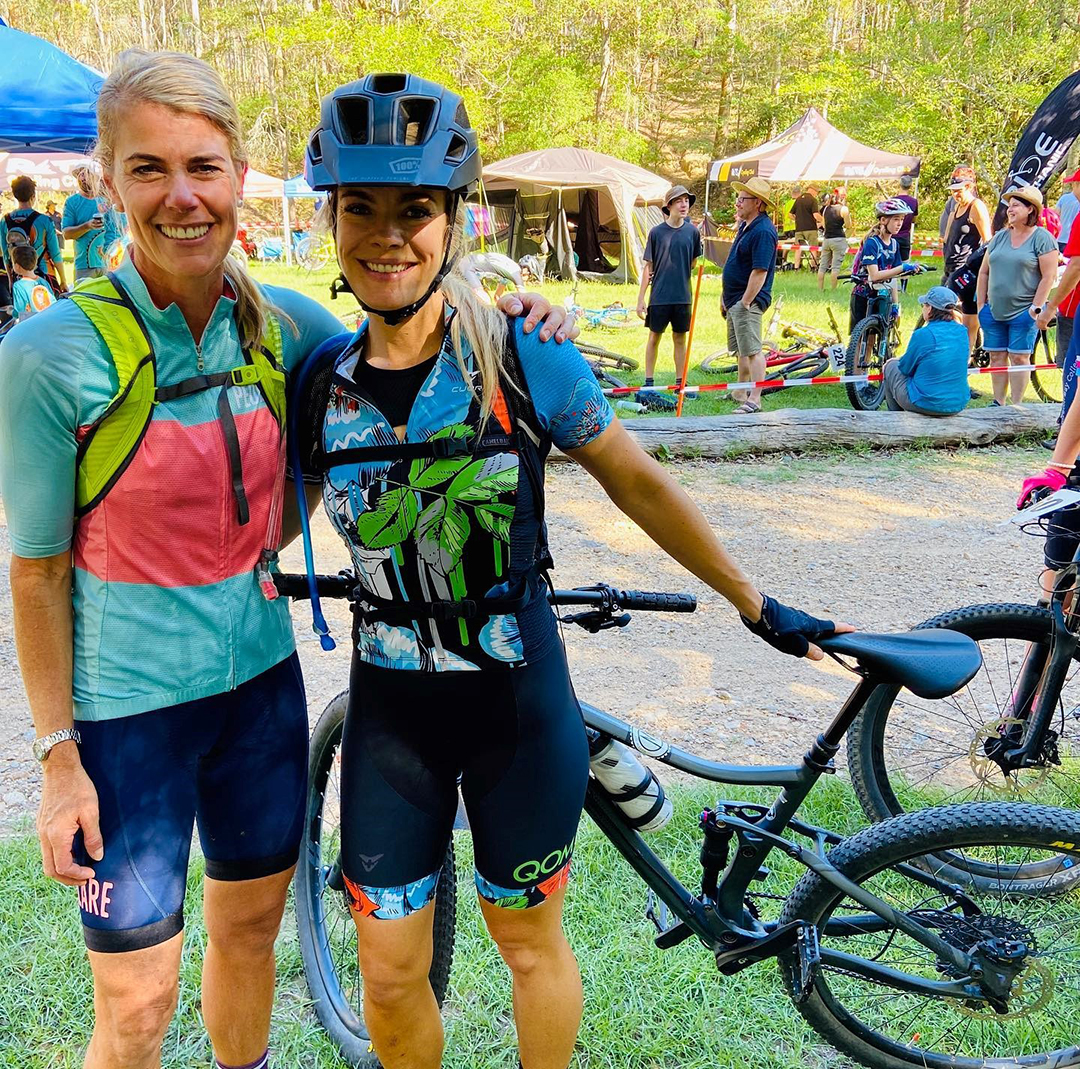
She kept a journal in rehab and wrote down everything she learnt throughout that year. It was a time of awakening, to slow down and enjoy her life.
“It was an enormous wake up,” she says.
“From this golden run out of the Olympic Games into a beautiful school teaching physical education, as a Director of Sport, and then waking up paralysed down one side and realising you can't actually do your job anymore, is quite frightening for anyone I think, no matter what.”
“When you question who are you – without your capabilities – it was a chance to unchain and let go of your identity and embrace a new one. I really had to unchain myself to my physical identity and just have that freedom to embrace new possibilities.”
This unshakable mindset has always been an essential piece of Sally’s success.
She saw first-hand how dedication, turning obstacles into opportunities, grit and daily habits, not only improved her boat speed and capability as a rower, but also made her a better more competent student.
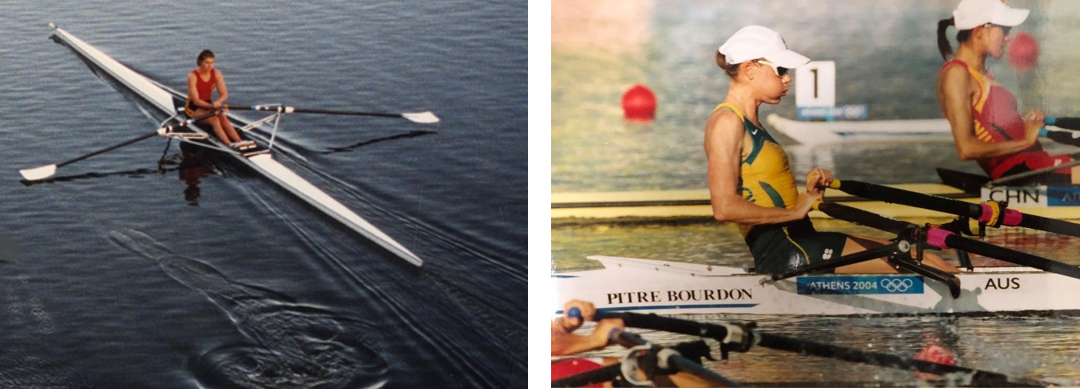
It was a powerful lesson – one she has always embodied – that proved with a growth mindset and dedication your goals and most unimaginable dreams can come true.
“As a little girl, I sat in front of the television watching the Olympic Games, so to be actually there wearing your country's colour, walking into the stadium with the flag held high, was an absolute honour.”
“I just feel so proud to have been part of such an incredible team I had dreamt about my entire life. I felt honoured and grateful and just so fortunate to have been taught incredible lessons to be able to get to that level of sport.”
“It’s a wonderful thing to share with students, and great for them to understand what it takes to get to that level too.”
Sally has always been fascinated with how some people could learn from failure and others would quit or resign after such an experience – and what the difference was. This is the lesson she brought into her study at UniSA and is the backbone of her ethos as an educator.
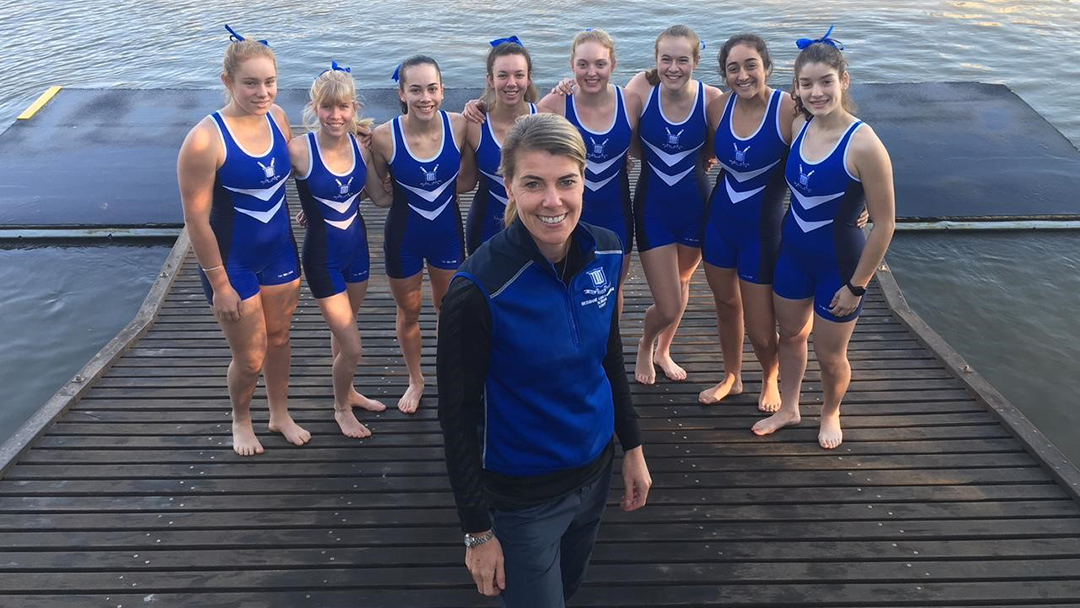
Sally’s athletic success, and how she built herself back up after such a harrowing and debilitating experience, only reiterated the importance of her physical education degree, and how her teaching is not just about the physicality, but mental strength and the power of co-curricular.
It was in the classroom – or out on the oval – where her lessons and achievements as an Olympian made the most difference.
Sally loves having her feet on the ground with school kids instilling the importance of mental health and physical health to the next generation, incorporating mindfulness and the ability to turn failure into fuel in her PE and Science lessons by someone who knows the true power of these skills.
“I've always wanted to help people and I've always wanted to help kids to develop a great mindset. That has been with me from a young age,” she says. “Being involved in sport and seeing how some kids can learn from setbacks and other kids can crumble has fascinated me and I thought I could be an educator and one day be able to positively impact these kids.”
“Now I do a lot with them about with turning that failure into feedback by having a growth mindset and I think it’s even more important now.”
“I've experienced such a big curve ball and I try to tell the students that none of us get away in life without a few scars, but the ability to bounce back is what's important.”




